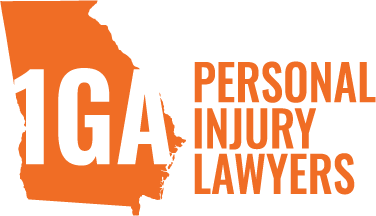When you are about to get your personal injury settlement, the last thing you want to worry about is how much of it will end up in Uncle Sam’s pocket. After all, you’ve already had to cope with medical bills and lost income.
Here, you will learn if a personal injury settlement is taxable in Georgia.
Parts of a Personal Injury Settlement Are Not Taxable
Not all parts of a personal injury settlement are treated as gains by the IRS. The federal tax authority has clear guidelines on the non-taxable portion and the part of the settlement that is considered a gain.
The logic is that some parts of a settlement represent a reimbursement for expenses already incurred. Thus, you did not actually gain anything but only got paid back.
However, other parts of a settlement represent compensation that does not reimburse you for incurred costs – thus, they are considered a gain.
Here is the general overview of what is and what is NOT taxable.
Compensation for Medical Treatment, Non-Taxable
The good news is that compensation for medical treatment in a personal injury case is typically not taxable. This means that you don’t have to worry about reporting the settlement as income on your tax return.
Deducted Medical Expenses, Taxable
If you deduct medical expenses related to your personal injury in the previous year on your income taxes, you must report any portion of your settlement that is specifically designated as compensation for those deductible medical expenses.
This means that if you received reimbursement for past medical bills or future medical care costs as part of your settlement agreement and had previously taken deductions for these expenses on your taxes, then this portion of the settlement would be considered taxable income.
It’s crucial to keep accurate records in order to accurately report any taxable portion of your settlement while also maximizing any available deductions or exemptions.
Lost Wages Are Taxable
Compensation for lost wages in a personal injury case is considered taxable income. The reason is that the money you earned as wages would have been taxed.
Emotional Distress, Generally Not Taxable
The general rule is that compensation related to physical injuries and sickness in a personal injury case is not taxable. If your settlement includes compensation for mental anguish, this is tax-free as long as the psychological suffering is tied to a physical injury.
Punitive Damages, Taxable
Punitive damages are a type of compensation awarded to the injured party in a personal injury case. Unlike other types of damages, such as medical expenses or lost wages, punitive damages serve a different purpose – they aim to punish the defendant for their egregious behavior and deter others from engaging in similar conduct.
However, when it comes to tax implications, punitive damages are treated differently. These damages are considered taxable income by the IRS.
Call an Experienced Buford Personal Injury Lawyer Today!
An experienced Buford personal injury attorney will fight for the maximum settlement you are entitled to collect.
Reach out to us for legal assistance if you suffered an accident due to someone else’s negligence. We offer each new client a free case review, so you do not have to worry about yet another upfront expense: 678-634-9939!





